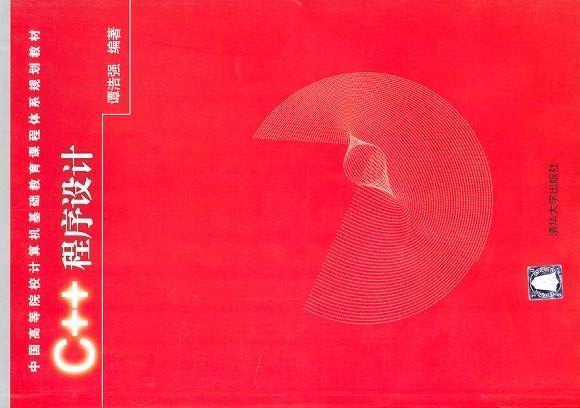
这是考试前总结的面向对象程序设计书上的例题,以及特殊函数和自己的分析;这是考试前总结的面向对象程序设计书上的例题,以及特殊函数和自己的分析;这是考试前总结的面向对象程序设计书上的例题,以及特殊函数和自己的分析
|
1 2 3 4 5 6 7 8 9 10 11 12 13 14 15 16 17 18 19 20 21 22 23 24 25 26 27 28 29 30 31 32 33 34 35 36 37 38 39 40 41 42 43 44 45 46 47 48 49 50 51 52 53 54 55 56 57 58 59 60 61 62 63 64 65 66 67 68 69 70 71 72 73 74 75 76 77 78 79 80 81 82 83 84 85 86 87 88 89 90 91 92 93 94 95 96 97 98 99 100 101 102 103 104 105 106 107 108 109 110 111 112 113 114 115 116 117 118 119 120 121 122 123 124 125 126 127 128 129 130 131 132 133 134 135 136 137 138 139 140 141 142 143 144 145 146 147 148 149 150 151 152 153 154 155 156 157 158 159 160 161 162 163 164 165 166 167 168 169 170 171 172 173 174 175 176 177 178 179 180 181 182 183 184 185 186 187 188 189 190 191 192 193 194 195 196 197 198 199 200 201 202 203 204 205 206 207 208 209 210 211 212 213 214 215 216 217 218 219 220 221 222 223 224 225 226 227 228 229 230 231 232 233 234 235 236 237 238 239 240 241 242 243 244 245 246 247 248 249 250 251 252 253 254 255 256 257 258 259 260 261 262 263 264 265 266 267 268 269 270 271 272 273 274 275 276 277 278 279 280 281 282 283 284 285 286 287 288 289 290 291 292 293 294 295 296 297 298 299 300 301 302 303 304 305 306 307 308 309 310 |
//函数重载 1.6 #include "iostream" using namespace std; int max(int a,int b){ return a>b?a:b; } float max(float a,float b){ return a>b?a:b; } long max(long a,long b){ return a>b?a:b; } int main(){ int a,b; cin>>a>>b; cout<<max(a,b)<<endl; return 0; } //函数模板 1.8 //使用模板时不能只使用两个参数,会报错,如 //[Error] call of overloaded 'max(int&, int&)' is ambiguous #include "iostream" using namespace std; template <typename T> T max(T a,T b,T c){ if(b>a) a=b; if(c>a) a=c; return a; } int main(){ int i1=8,i2 = 5,i3 = 6,i; double d1 = 56.9,d2 = 90.765,d3 = 43.1 ,d; long g1 = 678435,g2 = -1555,g3 = 784354,g; i = max(i1,i2,i3); d = max(d1,d2,d3); g = max(g1,g2,g3); cout<<i<<endl; cout<<d<<endl; cout<<g<<endl; return 0; } //使用变量的引用来传递值进行转换,也可以传递地址,使用指针获取地址再使用 //变量的引用 1.12 #include "iostream" using namespace std; int swap(int &a,int &b){ return a>b?a:b; } int main(){ int n,m; cin>>n>>m; cout<<swap(n,m); return 0; } //一个简单的类 2.4 #include "iostream" #include "algorithm" using namespace std; class Array_max{ public: void set_value(); void max_value(); void show_value(); private: int array[100]; int maxn; }; void Array_max::set_value(){ for(int i=0;i<10;i++){ cin>>array[i]; } } void Array_max::max_value(){ sort(array,10); maxn = array[9]; } void Array_max::show_value(){ cout<<"max="<<maxn<<endl; } int main(){ Array_max arr; arr.set_value(); arr.max_value(); arr.show_value(); return 0; } 简单的构造函数 3.1 #include "iostream" using namespace std; class Time{ public: Time(){ hour = minute = sec = 0;} void set_time(); void show_time(); private: int hour; int minute; int sec; }; void Time::set_time(){ cin>>hour>>minute>>sec; } void Time::show_time(){ cout<<hour<<":"<<minute<<":"<<sec<<endl; } int main(){ Time t; t.show_time(); return 0; } 类外定义有参的构造函数 3.2 #include "iostream" using namespace std; class Time{ public: Time(int,int,int); void set_time(); void show_time(); private: int hour; int minute; int sec; }; void Time::set_time(){ cin>>hour>>minute>>sec; } void Time::Time(int h,int m,int s){ hour = h; minute = m; sec = s; } void Time::show_time(){ cout<<hour<<":"<<minute<<":"<<sec<<endl; } int main(){ Time t; t.show_time(); return 0; } 使用默认参数的构造函数 3.4 #include "iostream" using namespace std; class Box{ public: Box(int h=0,int w=10,int len=10); int volume(); private: int height; int width; int length; }; Box::Box(int h,int w,int len){ height = h; weigth = w; length = len; } int Box::volume(){ return height*weigth*length; } int main(){ Box box1; cout<<box1.volume()<<endl; Box box2(15); cout<<box2.volume()<<endl; Box box3(15,30); cout<<box3.volume()<<endl; Box box4(15,30,20); cout<<box4.volume()<<endl; return 0; } 析构函数 3.5 #include "iostream" #include "string" using namespace std; class Student{ public: Student(int n,string nam,char s){ num = n; name = nam; sex = s; cout<<"Constructor called."<<endl; } ~Student(){ cout<<"Destructor called."<<endl; } void dispaly(){ cout<<"num: "<<num<<endl; cout<<"name: "<<name<<endl; cout<<"sex: "<<sex<<endl; } private: int num; string name; char sex; }; int main(){ Student stud1(10010,"Wang_li",'f'); stud1.dispaly(); Student stud2(10011,"Zhang_fan",'m'); stud2.dispaly(); return 0; } 对象指针: Time *pt; 定义指针 Time t1; 定义对象 pt = &t1; 将t1的起始地址给指针pt 指针对成员的引用 *pt (*pt).hour pt->hour 普通函数可以在类内声明为友元函数 friend void display(Time&); 其他类里的成员函数也可以在类内声明为友元函数 friend void Time::display(Date&) 注意括号里的内容,友元函数可以访问私有成员 最开始的复数相加,重载+运算符 4.2 其他符号的重载都相似,会一个就行 #include "iostream" using namespace std; class Complex{ public: Complex(){real = 0;imag = 0;} Complex(double r,double i){real = r;imag = i;} Complex operator +(Complex &c2); void display(); private: double real; double imag; }; Complex Complex::operator +(Complex &c2){ Complex c; c.real = real + c2.real; c.imag = imag + c2.imag; return c; } void Complex::display(){ cout<<real<<" : "<<imag<<endl; } int main(){ Complex c1(3,4),c2(5,-10),c3; c3 = c2 + c1; c3.display(); return 0; } 重载流插入运算符和流提取运算符 istream & operator >>(istream &,自定义类 &); ostream & operator <<(ostream &,自定义类 &); 重载流插入运算符 《 #include "iostream" using namespace std; class Complex{ public: Complex() {real = 0;imag = 0;} Complex(double r,double i){real = r;imag = i;} Complex operator +(Complex&c2); friend ostream& operator <<(ostream,Complex&); private: double real; double imag; }; Complex Complex::operator +(Complex&c2){ return Complex(real+c2.real,imag+c2.imag); } ostream & operator <<(ostream & output,Complex&c){ output<<"("<<c.real<<"+"<<c.imag<<"i)"<<endl; return output; } int main(){ Complex c1(2,4),c2(6,10),c3; c3 = c2 + c1; cout<<c3<<endl; return 0; } 重载流提取运算符 #include "iostream" using namespace std; class Complex{ public: friend ostream& operator <<(ostream&,Complex&); friend istream& operator >>(istream&,Complex&); private: double real; double imag; }; ostream& operator <<(ostream& output,Complex& c){ output<<c.real<<c.imag<<endl; return output; } istream& operator >>(istream& input,Complex& c){ input>>c.real>>c.imag; return input; } int main(){ Complex c1,c2; cin>>c1>>c2; cout<<c1<<endl; cout<<c2<<endl; return 0; } |